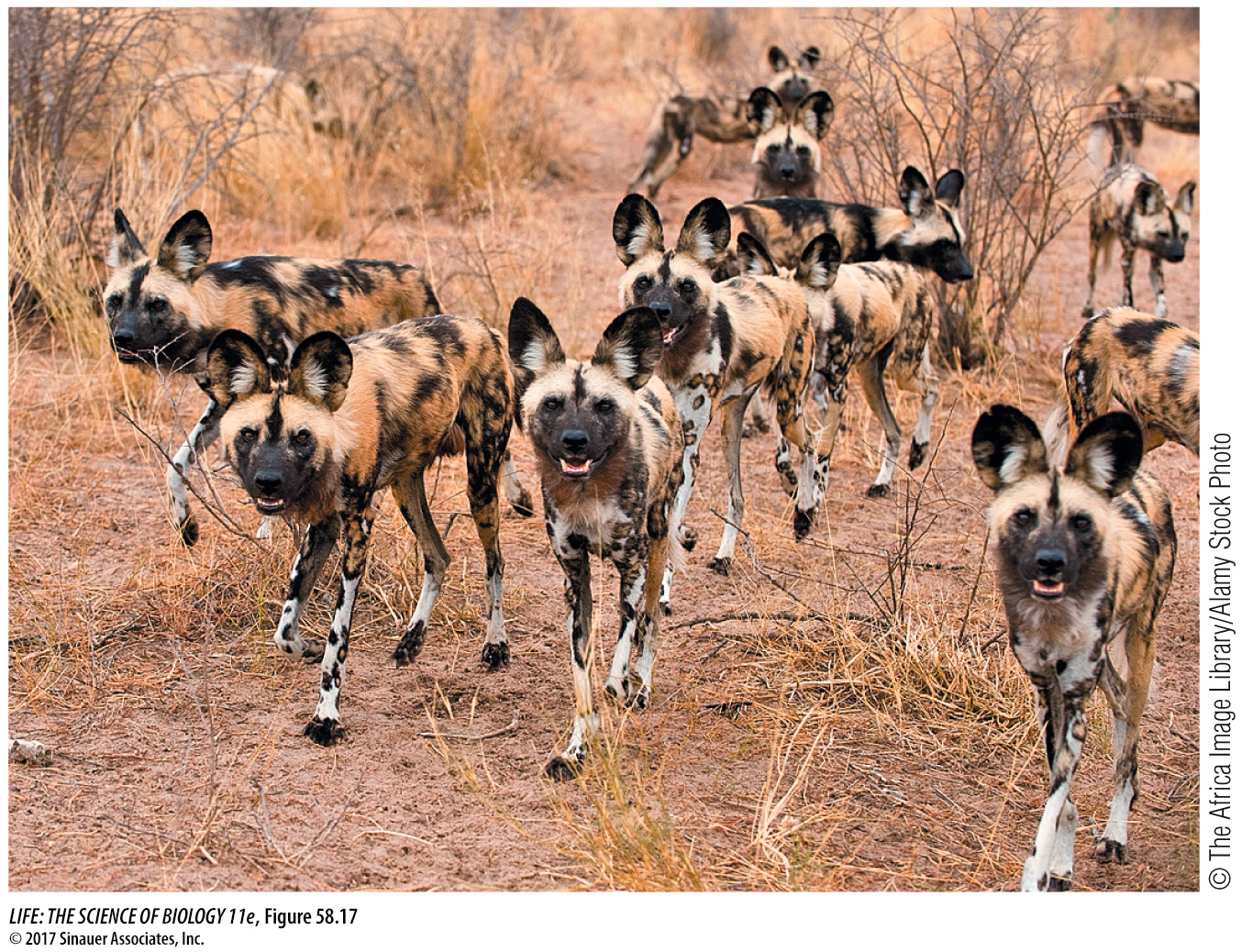Biodiversity can be conserved as a consequence of its economic value
As we’ve discussed previously, biodiversity can benefit humans in profound ways, providing important goods and services. You learned in Key Concept 57.5 that ecosystem goods and services can be valued by using a variety of methods to determine what people are willing to pay for them. Some goods such as timber or products from the animal trade are relatively easy to value, but nonmarket services such as the existence of an endangered species or the ability to visit a unique ecosystem are much harder to value. The following examples provide a sense of the nonmarket benefits of conserving rare or endangered species.
WILD DOGS AND ECOTOURISM Environmentally responsible travel to natural areas, the proceeds of which support conservation efforts and the economic well-being of the local communities, is a major source of income for many developing nations. For example, tourists visiting Africa often express interest in seeing wild dogs (Lycaon pictus) (Figure 58.17). However, diseases such as rabies and canine distemper, along with habitat loss, road kills, deliberate extermination due to a perceived threat to livestock, and many other factors have decimated wild dog populations, making this the second-most endangered carnivore in Africa. (Another canid, the Ethiopian wolf, Canis simensis, is first.) South Africa is home to about 400 of Africa’s remaining 5,000 wild dogs, most of which live in Kruger National Park. Their endangered status has piqued tourist interest in these charismatic animals; a survey of visitors to South Africa revealed that nearly three-fourths of them would be willing to pay an extra U.S. $12 for the opportunity to see wild dogs. Conservation biologists are working with lodge owners and ranchers elsewhere in South Africa and in Kenya to encourage them to reestablish wild dogs in areas from which they have disappeared.

Figure 58.17 Tourists Are Willing to Pay to See Wildlife The wild dog (Lycaon pictus) is the second-most endangered carnivore in Africa. Tourists come to Kruger National Park in South Africa to catch a glimpse of this rare species.
Page 1266
POLLINATORS AND COFFEE Taylor Ricketts and colleagues at Stanford University assessed the economic value of the pollination services provided by the bees that live in, and depend on, tropical forest patches adjacent to a coffee plantation in Costa Rica. They found that coffee production was highest at the sites that were closest to forest patches. They also hand-pollinated some coffee plants to show that the difference in production was a result of pollination services rather than other environmental conditions. The investigators calculated that the value of pollination services to the plantation on which the experiments were carried out was about $60,000 per year, more than the current conservation incentive payments offered to landowners to preserve forest patches.
